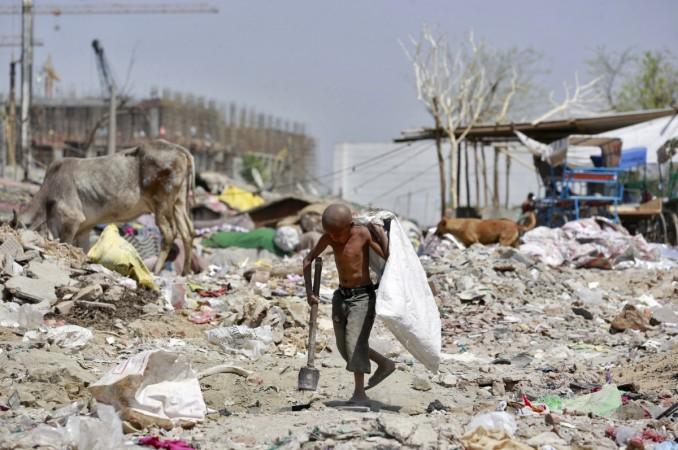
When child labour laws in India state that a child can work in a family business after school hours, it considers that a child can do both without adverse affect on the child's education. However, the Census 2011 data states that one in three child labourers in India is illiterate.
As many as 1.4 million children in the age group of 7-14 years cannot even write their names. This is true for children who work more than half of the year. However, for those children who work less than six months (marginal workers) to aid their families economically, the data shows a bleaker worldview.
As many as 2 million marginal workers' education has been affected due to labour. Children in Bihar face the most brunt as 45 percent of child labourers are illiterate, in Rajasthan and Jharkhand the figure stands at 40 percent. Madhya Pradesh and Andhra Pradesh also have about 38 percent child labourers who are illiterate.
"Working children and those working long stretches before and after school hours have issues of inattentiveness and tiredness in school, lesser attendance, lack of play time and social bonding after school which subsequently leads to drop out and hampers their growth and development. It is absolutely disheartening to see a 37% increase in child labourers in the category of 5-9 years in the last ten years. In tender years where they should be learning to hold a pencil, they are compelled to take up the burden of playing economic roles," Komal Ganotra, director, Policy and Advocacy of CRY told International Business Times India.
Poverty in India forces children into intergenerational cycles of poverty, forcing them to take up work at a tender age. While child labour laws exist in India, they provide a leeway to those who work within the family. However, this has only led to an increase in the number of child labour while adversely affecting their education.
The case of 12-year-old Naveen Kumar from a small village in Madanpally, Andhra Pradesh is inspiring, but rare. Once a child labourer, he went on to win a national award from the Ministry of Science and Technology for inventing an eco-friendly, cost effective mechanism to cook food. Another such example is M Mohanapriya from Salem, Tamil Nadu. She became the first girl from the Arundhatiyar community, often considered to be the lowest among the dalits, to pass class 10. Today, she harbours the hopes of becoming an IAS officer.













!['It's not Mumbai traffic, it's air traffic': Suriya apologises to Mumbai media after paparazzi yelled At Him for making them wait for hours [Watch]](https://data1.ibtimes.co.in/en/full/806234/its-not-mumbai-traffic-its-air-traffic-suriya-apologises-mumbai-media-after-paparazzi.jpg?w=220&h=138)



